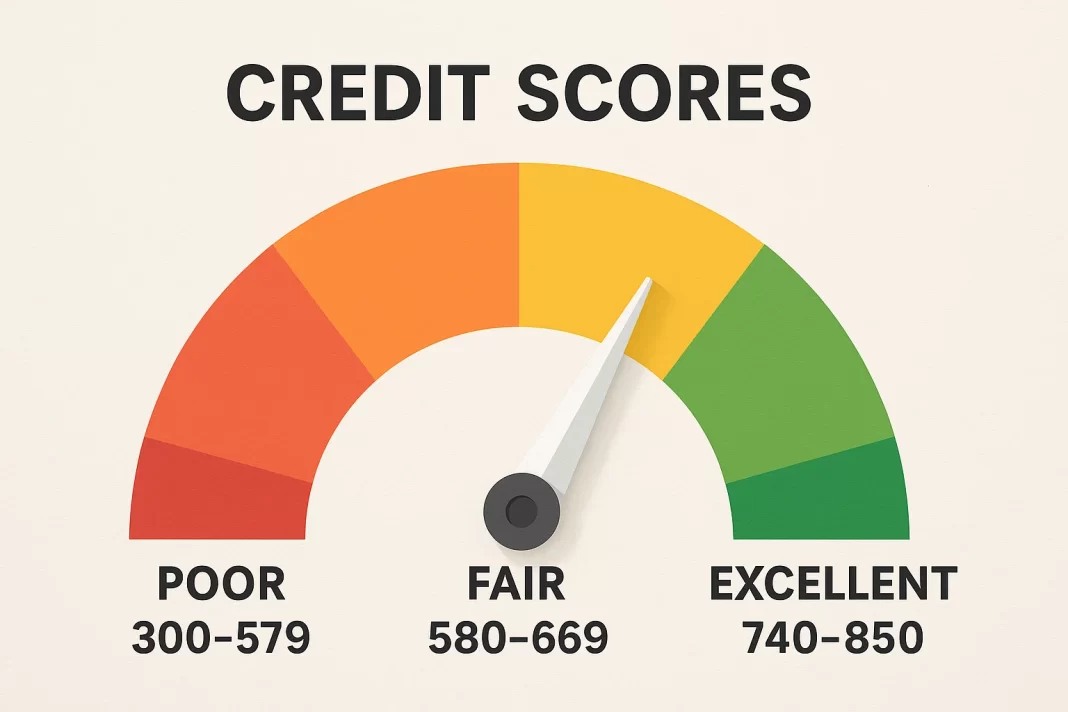At first glance, a credit score may seem like just another impersonal number. But dig deeper, and that three-digit figure reveals a great deal about your financial behavior, your access to opportunity—and how the system evaluates your trustworthiness.
From the interest rate on your mortgage to your ability to rent an apartment or finance a car, your credit score plays a quiet but powerful role in shaping your life. Yet for many Americans, the meaning behind the number remains elusive.
Here’s what those credit score ranges really say—and what you can do to move in the right direction.
What Is a Credit Score?
A credit score is a standardized rating of your creditworthiness, most commonly ranging from 300 to 850. It’s calculated using algorithms developed by models like FICO and VantageScore, and it’s based on your borrowing and repayment history.
Lenders use it to assess how likely you are to repay debts—and at what terms.
Breaking Down the Score Ranges
| Credit Score | Rating | Lender Perspective |
|---|---|---|
| 300–579 | Poor | High risk. Credit approvals are unlikely or come with steep costs. |
| 580–669 | Fair | Risk is elevated. Some loans may be approved, but terms are less favorable. |
| 670–739 | Good | Acceptable risk. Credit approvals are common with moderate rates. |
| 740–799 | Very Good | Low risk. Qualifies for strong loan terms and credit products. |
| 800–850 | Exceptional | Very low risk. Access to the best rates, perks, and elite financial products. |
While these categories apply to both FICO and VantageScore models, exact cutoffs may vary slightly between lenders.
What Influences Your Score?
Your credit score reflects several key behaviors. For FICO scores, the breakdown looks like this:
-
Payment History (35%) – On-time payments matter most. Missed payments leave long-lasting marks.
-
Amounts Owed (30%) – Also called credit utilization. Lower is better.
-
Length of Credit History (15%) – Older accounts add stability and trust.
-
Credit Mix (10%) – A variety of account types shows responsible borrowing.
-
New Credit (10%) – Frequent credit applications can raise red flags.
In essence, credit scoring models reward consistency, restraint, and long-term financial habits.
Why Your Score Matters
Credit scores impact much more than whether you get approved for a loan. They can:
-
Determine interest rates—the higher your score, the lower your borrowing costs.
-
Affect mortgage approvals and down payments.
-
Influence insurance premiums and utility deposits.
-
Even come into play during job screenings in certain industries.
For example, a borrower with a 780 score might qualify for a 30-year mortgage at 6.1%, while someone with a 640 score could face a rate above 7.5%—costing tens of thousands more over time.
How to Improve Your Credit Score
Credit scores are dynamic—and they can be improved. Here are foundational strategies:
-
Pay bills on time, every time. Even one missed payment can significantly drop your score.
-
Reduce balances on credit cards to keep your utilization below 30%.
-
Don’t close old accounts—length of history counts.
-
Avoid frequent credit applications, especially for non-essential debt.
-
Monitor your credit reports for errors. You’re entitled to free reports at AnnualCreditReport.com.
Improving your score is a long game—but one that pays off.
Debunking Common Credit Myths
-
Myth: Checking my own score will hurt it.
Truth: Checking your score is a soft inquiry. It has no effect. -
Myth: You need to carry a balance to build credit.
Truth: Paying your balance in full is better for your score and your wallet. -
Myth: Closing unused cards helps your score.
Truth: It can actually reduce your available credit and shorten your history.
Final Thoughts
A credit score doesn’t define you—but it can define your options. Whether you’re building credit for the first time or recovering from past missteps, understanding how scores work is a key part of financial literacy.
In a system that increasingly runs on data, your credit score is one of the most influential numbers in your life. The good news? You have more control over it than you think.






